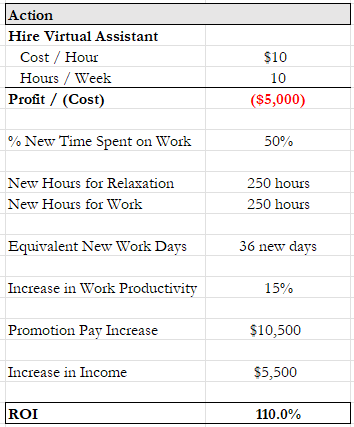☕ saturday mornings - March 12, 2022
labors of Hercules, rating opportunities & careers that make you rich
Good morning all!
Happy Saturday. I hope you’re having an excellent start to your weekend.
Below is your edition of “saturday mornings”, a weekly recap of the coolest things I’ve been pondering and exploring this week.
This week’s edition will be more concise than usual, as I’m currently working heads down in Write of Passage (the best online writing course in the world). In this, I hope to become a better writer and curator of ideas for you.
On another note, realizing my god-given talent for drawing, I included a couple of little illustrations in this week’s edition. If you enjoyed them, please let me know!
Thanks for being here.
Total read time (all) = 3 minutes
✍️ Quote I’m pondering:
“A small daily task, if it be really daily, will beat the labors of a spasmodic Hercules.”
— Anthony Trollope
📖Book passage I loved:
You are the author of your own life, and it’s never too late to replace the stories you tell yourself and the world. It’s never too late to begin a new chapter, add a surprise twist, or change genres entirely.
― Tim Ferriss
💡 Idea from me: Rate opportunities on a scale of 1-10 … BUT you can’t choose 7
This is a simple heuristic I’ve used to make difficult decisions much easier.
Warren Buffett says no to almost everything because he firmly believes you have to say ‘no’ to good opportunities to be able to say ‘yes’ to great ones.
By placing jobs, books, or appetizers on a numerical scale we can make better decisions on how to spend our finite money, time, and energy.
In short, we can separate the wheat from the chaff, the good from the great.
By thinking quantitatively, you can objectively measure if something is really worth your finite resources.
Yet, 7/10 is a cop-out answer. A 7 isn’t actionable as it doesn’t help make the “go” or “no-go” decision.
If I asked my friend if he would recommend a book he recently read, and he said it was a 7/10 I’d be left scratching my head if it was worth reading. Whereas, a 6 is a fail while an 8 looks pretty darn good.
By categorizing opportunities or projects on two dimensions: (i) Personal Rating out of 10, and (ii) Necessity, we can apply a simple framework to decide how to allocate our time, energy, and focus.
Below a 7, Optional: Avoid at all costs. These are killers. A helpful question I come back to: “Would I say yes to this if it were on Tuesday?”
Below a 7, Mandatory: Delegate or automate. Unless your time is worth less than $10-15/hour a virtual assistant adds economic value to your life.
Above a 7, Optional: Have fun. Life is meant to be enjoyed.
Above a 7, Mandatory: These are the “great” opportunities. Prioritize ruthlessly. They don’t come by very often. You have to grab it with both hands while you have it.
Side Note: For curious minds, I calculated an illustrative ROI on hiring a virtual assistant for an average worker ($70,000 median salary, 50 work weeks per year, 40 hour work weeks).
This assumes you only use half of your freed-up time for work, and your increase in income is proportionate to your increase in productivity (if your workplace rewards output fairly). The returns become more disproportionate as you increase your income.
💡 Idea from me: Choosing a career path
Tim Ferriss said the best career advice he was ever given was from a mentor upon graduating college.
His mentor told him: It’s of little importance what sector you choose to work in, as long as it’s growing very quickly. You want to be in an industry that is growing, not stagnant or in decline.
According to Richard Koch, in his book “The Star Principle”, the magic number for sector growth is >10% annually.
If you can work for a company that’s a leader in its market niche (measured by sales volume), the combination of dominant market share and strong growth often leads to massive success for a business, and thus success for its employees.
For further exploration:
Richard Koch’s book “The Star Principle” is a quick but good read (8/10 😉). If you’re interested, let me know by replying to this email and I can send you my highlights.
Tim Urban’s How to Pick a Career (That Actually Fits You) was a massive help. Less about finding an industry that will make you rich, but rather finding a career that leverages your strengths and builds a future that excites you (which often is a prerequisite for getting rich).
The site 80,000 hours—dedicated to helping young, high-potential people make big career choices—is an awesome resource. The site is run by super smart, thoughtful, forward-thinking people.
If you enjoy “saturday mornings”, feel free to share this post with a friend 🙂
That’s all for this week’s edition of “saturday mornings”.
As always, if you have any feedback or thoughts, I’d love to hear from you.
Reply to this email, leave a comment, or find me on Twitter @tommy_dixon_
If you’re reading this on Substack or were forwarded this email, and you’d like to subscribe, click the button below.
Have a fantastic weekend.
Much love to you and yours,
Tommy






